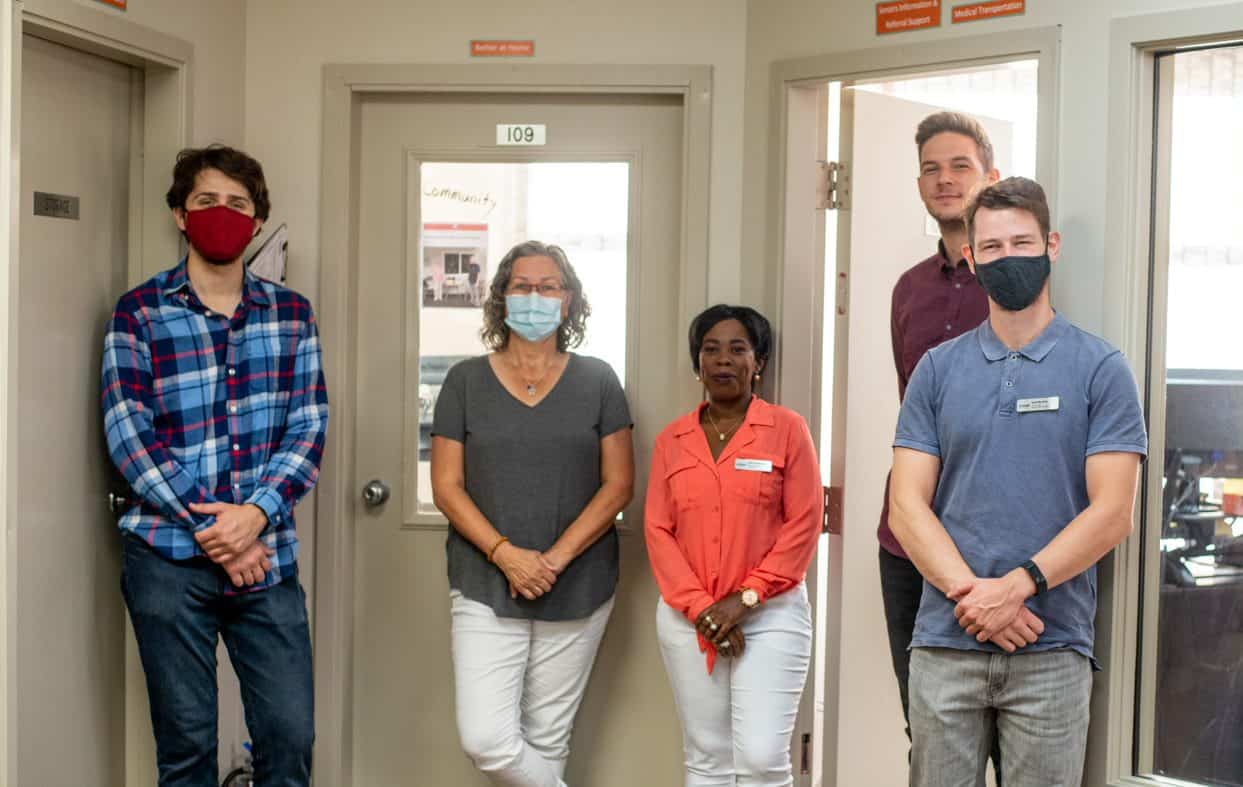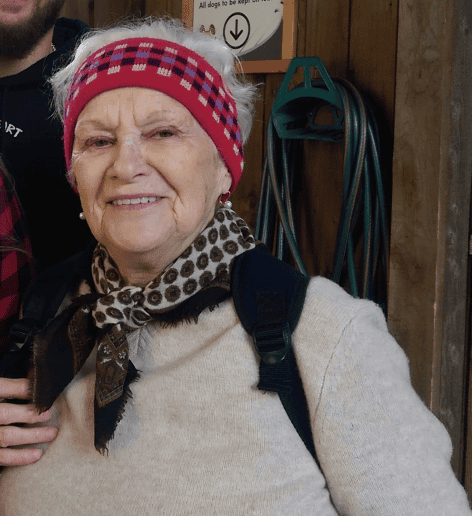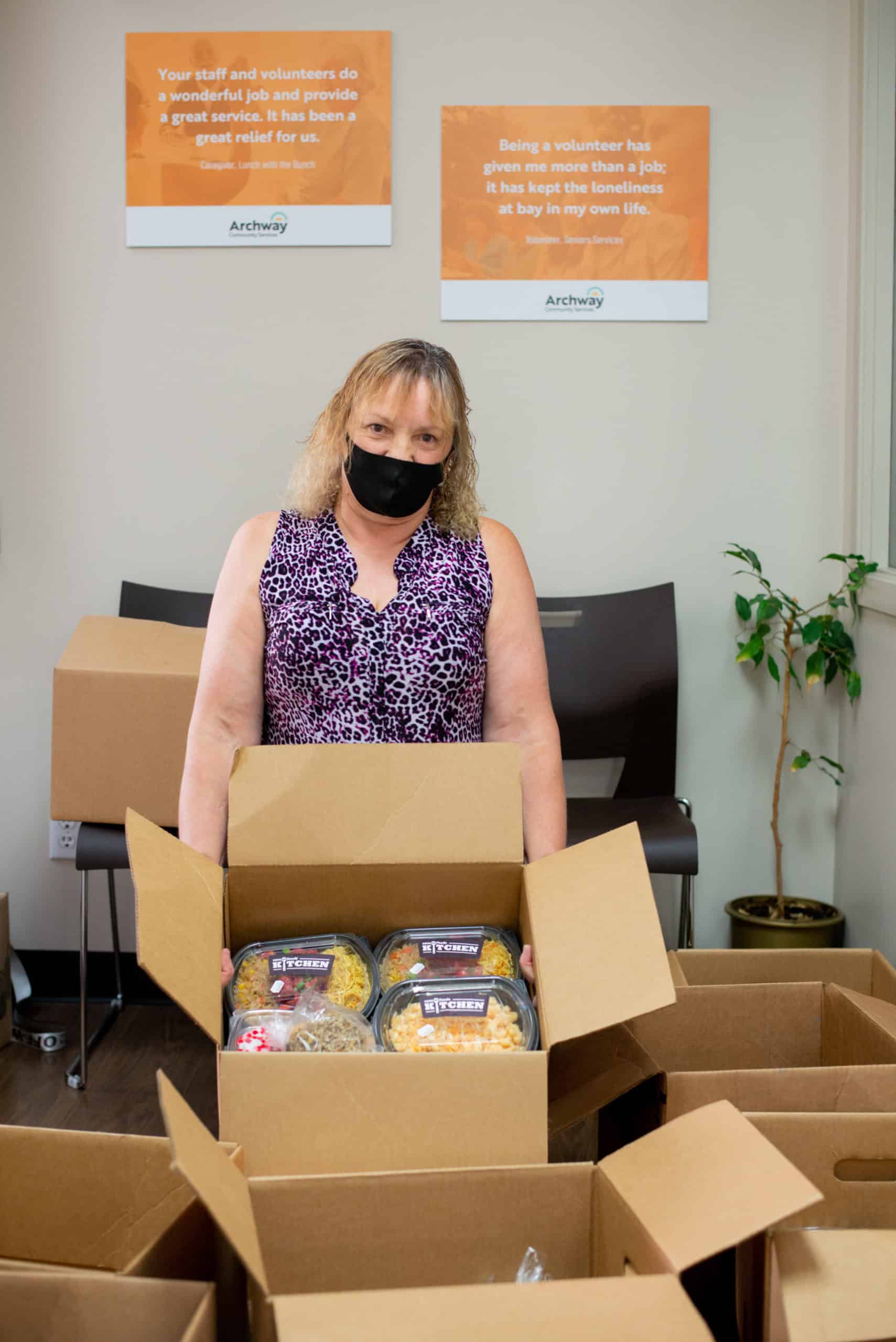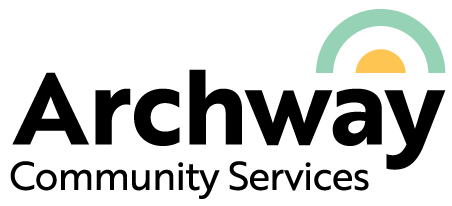
Social Prescribing Program
When Helen was denied entry across the border from Seattle to Abbotsford due to COVID-19 restrictions, she couldn’t imagine how she could continue to assist her 92-year-old mother Vera with a variety of essential tasks as she advanced in age.
“Emotionally drained and worried, I did a Google search for ‘help’, and came across the Archway homepage,” Helen said.
“I called and I explained my problems and after a brief hold, an angel answered in the form of Jada! With her knowledge of the resources available, combined with her kindness and a passion to help, we were able to move mountains. We arranged a Zoom meeting with my mother’s orthopedic surgeon in Vancouver, my mother in Abbotsford, and me in Seattle.”
As the Seniors Community Connector in the Social Prescribing Program, Jada connects seniors to services to help them delay frailty and reduce their loss of independence. Jada arranged all transportation needs and the x-rays before the virtual meeting, plus transportation to Vancouver for injections in Vera’s arthritic knee to allow her to walk independently. Later transportation to a COVID vaccine appointment was also coordinated through the Archway Community Van program.
“I am deeply thankful to her; and my mother is beside herself in disbelief at what we accomplished which would have been zero if it was not for Jada’s help,” Helen said.
While this has been an experience where technology bridged the gap for a vulnerable senior, it has not been the only reality.

Helen found assistance with the Social Prescribing Program
Better at Home
The digital divide has been one of the biggest challenges faced by some seniors of Better at Home (BAH). A phone survey highlighted some of the feelings of disconnect and isolation experienced by participants during the pandemic. As life moved increasingly online, it was evident that some seniors were struggling with barriers to technology including being low-income, afraid of technology, or lacking interest in the digital world.
As Karen Kenny, the Better at Home Coordinator, reflected on the results of the phone survey, the question remained; “How do we overcome these barriers and provide supports so that seniors remain connected and engaged in their community?”
Recognizing that participants reported being more comfortable with telephone and mail communication, BAH partnered with Abbotsford Peer Support for Seniors volunteers, who now make around 100 friendly-visiting phone calls and wellness check-ins a month to BAH clients. BAH began mailing monthly community resources to participants of the program as well to keep them informed and engaged in their community.
Karen also noted that intake phone calls have become longer. When phone intakes used to take about 10 minutes, now she estimates the time has almost doubled. “We are a fast-paced society, so I like to slow down and provide the older adult the time they deserve. When we show interest, even if it is a phone call, it becomes a conversation and a means to feel connected.” And she is not alone in expressing this sentiment.
“Our phone call check-ins have gotten longer because our clients need that social human interaction,” shared Jada.
“This is where our memories are, and my husband and I want to stay in our home for as long as we can. We have been so grateful that we are still able to receive modified services from Better at Home. Even though we are faced with this pandemic, we don’t feel alone with the help of services that continue to do their best during all this to help seniors like my husband and I and our two Pomeranian dogs.“
Seniors Income Tax
Another Senior Services program, Seniors Income Tax, provided hybrid services during the tax season of 2021 to meet the needs of clients. The program helped over 400 low-income seniors in Abbotsford file their taxes, free of charge.
“We hosted in-person drop-off appointments for clients unable to access virtual platforms, while a phone option was available for those hesitant or unable to leave their homes,” shared Josh, the Senior Services Supervisor.
“During COVID-19 it’s been challenging to provide services since virtual options are not always sufficient in meeting client needs. We found that many of our clients preferred meeting volunteers in person, especially with the concerns of scams around tax season. Having a volunteer available to walk clients through their paperwork offered peace of mind as well,” he continued.
“Seniors who have relied on seeing others in-person were suddenly being asked to change how they access services, socialize and stay connected with their community. It would not be realistic of us to expect that change so quickly. We needed to be aware of excluding vulnerable people when prioritizing virtual services without first addressing the barriers.”
“You have been amazing…I can’t do a lot of things for myself anymore, so all your help and services have been so helpful. My daughter was so worried for me, but I reassured her not to worry because I have you to help me.”
Meals on Wheels
Meals on Wheels provides both fresh and frozen healthy meal options to individuals who are unable to shop or prepare meals themselves, often promoting independence and supporting clients to stay in their homes longer.
“The bulk of the clientele tends to be seniors, but our clientele also includes people who don’t have a lot of support from friends and family, people with disabilities, and others whose schedules don’t leave room for preparing food,” said Daniel, the Meals on Wheels Coordinator.
“For many, social isolation is a huge factor, and our volunteers are able to check in with the clients when delivering meals.”
Meals on Wheels saw an increase in clients from March to December 2020. There were challenges at times, including the demand for meals and a shortage of volunteers, but Meals on Wheels persevered to serve their clients. Donations from the community and the Archway Food Bank continue to help cover the cost for those unable to afford meal costs.
“We’re grateful to our partners like Save-On Foods on Sumas. They donate items before their best of date which allows us to provide our clients with extra food items,” Daniel said.
While COVID-19 has brought new challenges, the Senior Services team has remained committed to enriching the lives of seniors through relationship-building and advocacy.
“Working in the human services field you just have that compassion. We become advocates for seniors. When they are sharing their grief or their life situation with us, we become advocates for that person,” Karen shared on behalf of the Senior Services team.

Meals on Wheels volunteer Louise
